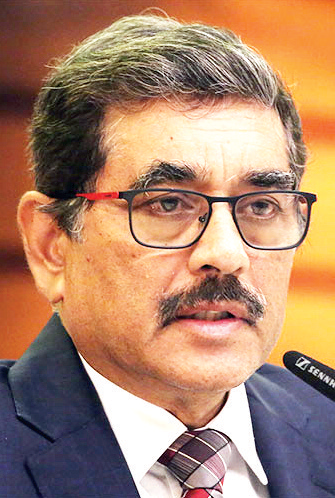Business
‘There is a business case for employer- supported childcare’

Across the globe, there has been a renewed commitment to expand early years’ services for children under five years of age. Early Childhood Care and Education (ECCE) includes both education and childcare, and while they have traditionally occupied distinctly different spheres, there has been a growing trend to integrate the two to provide more efficient and effective ECCE services for families.
In Sri Lanka, the government provides free access to compulsory primary and secondary education, but not to preschool education which is not mandatory. 70.8 percent of preschools and 78 percent of day care centers are privately operated and entail levy fees, thus reducing access and affordability for a sizeable segment of the population. Enrolment rates in primary and secondary education are high at 99 percent and 84 percent respectively. These rates were 56.6 percent in 2016 for preschool children between 3-5 years of age.
Access to affordable childcare directly affects the country’s labor force. It is worth noting that despite the high educational attainment of Sri Lanka’s women, the country’s female labor force participation rate was just 34.5 percent in 2019. A 2018 study by the International Finance Corporation (IFC) found that having a child under five years of age reduced a Sri Lankan woman’s participation in the labor force by 7.4 percent as compared with a woman who did not have young children.
What’s more, as Sri Lanka’s population ages—it has the most rapidly aging population in South Asia—family structures and gender roles change. Reduced support from the extended family is likely to leave families less able to care for young children at home, increasing their demand for childcare.
The good news is that employer support for childcare is growing. However, it does not reach parents who work in the informal sector, which in 2019 accounted for 57.4 percent of all workers.
Since 2000, successive governments have recognized the need to invest in early years services. The country has traditionally delivered these services through a multisectoral approach, with the involvement of several key ministries led, until August 2020, by the Ministry of Women and Child Affairs and Social Services (MWCASS). In addition, provincial authorities also have the power to pass legislation for the management and supervision of preschools in their provinces.
The involvement of multiple stakeholders and the lack of clarity in administrative structures has posed a major challenge for the ECCE sector. It has led to inadequate policy coherence, impacted resource allocation, and resulted in a duplication of functions. This has made it difficult to enforce uniform standards and regulations, particularly concerning the regulation of and coordination with the private sector.
In January 2020, the Sri Lankan cabinet approved a national Policy on Preschool Education tabled by the Ministry of Education (MoE). Following the parliamentary elections in August 2020 and the reorganization of ministerial mandates, ECCE was brought under the purview of the MoE, and the MWCASS was named as the State Ministry of Women and Child Development, Preschool and Primary Education, School Infrastructure and Education Services (SMWCDPPESIES). Discussions surrounding the details of this reorganization are currently underway.
Business
Salesforce Startup Program targets Sri Lanka’s high-growth tech sector

Salesforce, the world’s leading AI-powered CRM platform, is set to expand its presence in Sri Lanka with the launch of the Salesforce Startup Program by the end of January 2026, signalling growing confidence in the country’s technology-led growth potential.
The move comes as Sri Lanka consolidates its position as the second-largest startup ecosystem in South Asia after India, with software, data and artificial intelligence-driven ventures accounting for nearly 60 per cent of the national startup base.
Industry observers say this concentration places Sri Lanka at a decisive stage where global exposure and enterprise access could unlock the next phase of scale.
Under the programme, Sri Lankan startups will gain access to Salesforce’s global ecosystem, including AI-powered platforms, business and technical mentorship, joint go-to-market opportunities and connections to enterprise customers, enabling founders to build globally competitive solutions from Sri Lanka.
“Sri Lanka has developed a strong base of technical talent and entrepreneurial ambition that is increasingly visible regionally and globally,” said Arundhati Bhattacharya, President and CEO of Salesforce South Asia.
“Through the Salesforce Startup Program, we aim to help startups move beyond early momentum to global relevance while delivering long-term economic impact,” he added.
He also said the initiative builds on the success of its Startup Program in India and Singapore, which today supports over 435 startups, including more than 230 AI-first companies. Several participants have expanded across Asia and beyond by building products natively on the Salesforce platform.
Responding to queries, he said Sri Lanka is also emerging as an important enterprise market for Salesforce, with major corporates such as John Keells Holdings and Cinnamon Hotels adopting the platform to modernise customer engagement, sales, marketing and loyalty management operations.
In parallel, Salesforce is strengthening the country’s digital talent pipeline through its Trailhead learning ecosystem, with plans to skill nearly 1,000 learners over the next year via local workforce development partners and community-led cohorts.
Chamil Madusanka, Head of Salesforce Practice and Salesforce Architect, said the programme arrives at a critical juncture for Sri Lanka’s startup ecosystem.
“Sri Lankan founders are increasingly building AI, data and enterprise software solutions with global relevance,” Madusanka told The Island Financial Review.
“What many startups need is structured access to enterprise customers, global mentorship and market exposure. This initiative creates that bridge, enabling local companies to scale faster while remaining rooted in Sri Lanka.”
He said the Startup Program is designed to act as a connective platform, bringing together startups, enterprises, technology partners, universities and developer communities to accelerate collaboration and innovation.
By Ifham Nizam ✍️
Business
Good news on risen foreign reserves exerts buoyant impact on bourse

CSE activities were extremely bullish yesterday following Central Bank Governor Dr Nandalal Weerasinghe’s announcement that Sri Lanka’s foreign reserves had risen to US $ 6.8 billion in December 2025, up US$ 791 million from November 2025.
The Governor provided the estimated economic growth while announcing the Central Bank’s policy agenda for this year.
In December Sri Lanka received budget support loans from the Asian Development Bank and the International Monetary Fund.
Amid these developments both CSE indices moved upwards. The All Share Price Index went up by 226.81 points, while the S and P SL20 rose by 100.01 points. Turnover stood at Rs 12.3 billion with 12 crossings.
Top seven crossings that mainly contributed to the turnover were: Lee Hedges 18.2 million shares crossed to the tune of Rs 3.9 billion; its shares traded at Rs 416, Commercial Bank 2.1 million shares crossed for Rs 467.6 million; its shares traded at Rs 215, Ceylon Hotels 429,000 shares crossed for Rs 128.7 million; its shares traded at Rs 300, LB Finance 650,000 shares crossed for Rs 105 million; its shares sold at Rs 152.50, Ceylinco Holdings 31000 shares crossed for Rs 104.5 million; its shares traded at Rs 3400, Melstacorp 200,000 shares crossed tfor Rs 35.7 million; its shares sold at Rs 178.50 and Three Acres Farm 400,000 shares crossed to the tune of Rs 29.6 million; its shares fetched Rs 740.
In the retail market top seven companies that mainly contributed to the turnover were; Wealth Trust Securities Rs 1.17 billion (55.8 million shares traded), Commercial Bank Rs 509 million (2.4 million shares traded), HNB Rs 370 million (870,000 shares traded), ACL Cables Rs 303 million (three million shares traded), Prime Lands Residencies Rs 283 million (7.9 million shares traded), Lanka Realty Rs 227.5 million (4.7 million shares traded) and HNB Rs 218 million (332,000 shares traded). During the day 223.7 million share volumes changed hands in 55116 transactions.
Yesterday, investor interest in Wealth Trust and banking stocks led to higher activity levels, brokers said. Further, the real estate sector also performed well. Lanka Realty Investments PLC acquired 51 percent of the total number of shares in issue of Lee Hedges, CSE sources said. 13,057,595 ordinary voting shares were bought at Rs 216 each.
Yesterday the rupee opened at Rs 310.12/18 to the US dollar in the spot market, weaker from Rs 310.05/15 the previous day, dealers said, while bond yields opened marginally high.
By Hiran H Senewiratne ✍️
Business
Launch of monograph ‘Development: Not By Economics Alone’

The Gamani Corea Foundation (GCF) is pleased to announce the launch of the monograph Development: Not By Economics Alone by Dr. Nimal Sanderatne, Emeritus Chairperson of the Foundation. The foreword to the publication has been written by Dr. Godfrey Gunatilleke, one of Sri Lanka’s most eminent development economists. The launch ceremony will be held on Friday, 9th January 2026, at 4.00 p.m. at the Horton Lodge.
In this monograph, Dr. Sanderatne argues that development cannot be understood through economic indicators alone. He emphasizes that the quality of human capital depends not only on knowledge and skills acquired through formal education, but also on deeper, non-formal processes embedded in a society’s culture and value systems. These influence human behaviour, shaping work ethics, attitudes to work and leisure, capacity for teamwork, preferences between short- and long-term goals, and patterns of saving and consumption.
Dr. Sanderatne is a distinguished economist and academic, holding degrees from the Universities of London, Saskatchewan, and Wisconsin, and was conferred the Doctor of Science (Honoris Causa) by the University of Peradeniya in 2004.
-

 News3 days ago
News3 days agoInterception of SL fishing craft by Seychelles: Trawler owners demand international investigation
-

 News3 days ago
News3 days agoBroad support emerges for Faiszer’s sweeping proposals on long- delayed divorce and personal law reforms
-

 News4 days ago
News4 days agoPrivate airline crew member nabbed with contraband gold
-

 News2 days ago
News2 days agoPrez seeks Harsha’s help to address CC’s concerns over appointment of AG
-

 Latest News24 hours ago
Latest News24 hours agoWarning for deep depression over South-east Bay of Bengal Sea area
-

 News2 days ago
News2 days agoGovt. exploring possibility of converting EPF benefits into private sector pensions
-

 Features3 days ago
Features3 days agoEducational reforms under the NPP government
-

 Latest News19 hours ago
Latest News19 hours agoECB launch ‘thorough review’ in wake of 4-1 Ashes defeat














